The Pyramids Were Expected - But What She Found In Egypt Surprised Even Her
Our Trip Designer Spills The Sand On Her First Egypt Visit
Have you always dreamed of experiencing Egypt but worry that it might be too risky for a female traveler and that you might never get to experience the ‘true’ Egypt without jeopardising your safety and your wallet?
Luckily, our Trip Designer, Anela, visited a few months ago to meet up with our local team and see what the vibe there is really like…
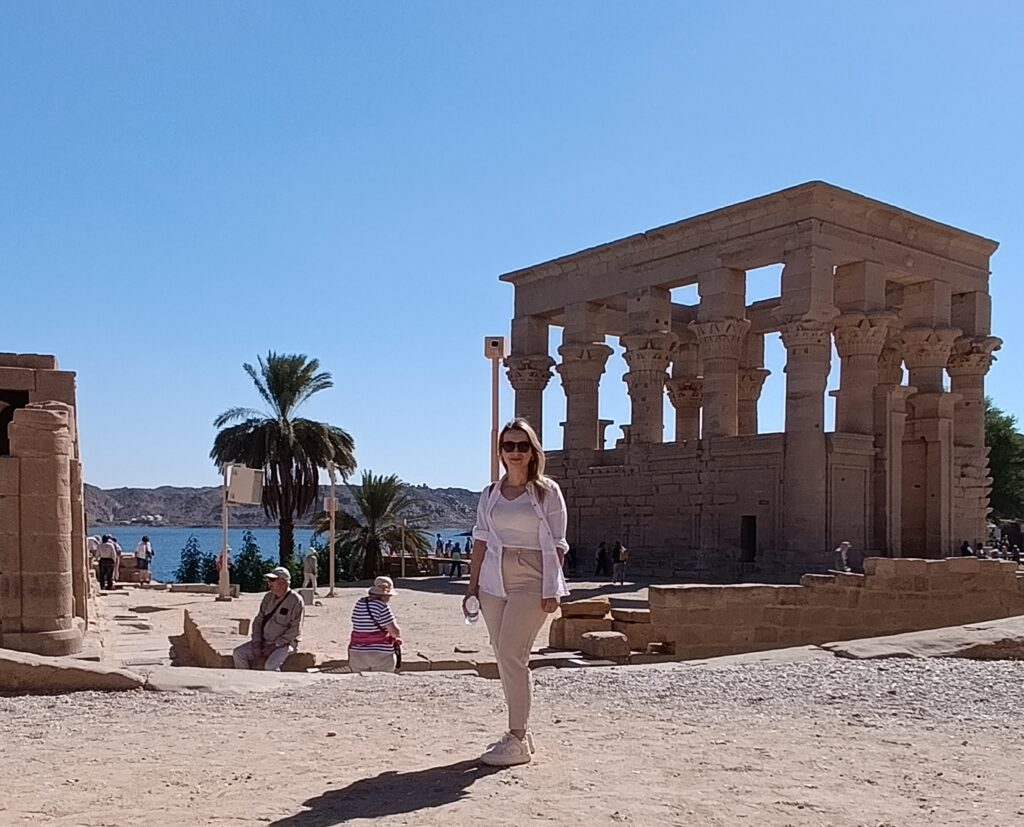
Was this your first time to Egypt and how did your trip come about?
Yes, it was my very first time! In fact, I experienced two ‘first’ times on this trip as it was my first time to Egypt and the very first time I stepped foot on the African continent. It was very exciting for me!
I’m based in Bosnia & Herzegovina where I’ve been working remotely for the past two and a half years with Patch’s Trip Design team. Mat, (our co-founder) asked me a few months ago where I wanted to visit, and I chose Egypt right away! It was a big ‘bucket list’ destination for me as I’ve always been fascinated by ancient civilisations and cultures. When the chance came up to go and meet our local team and spend seven days exploring the sites on our itinerary firsthand, I couldn’t wait!
The experience has been very beneficial for my work as a Trip Designer, especially as Egypt is close to a conflict zone so I really wanted to go and experience the vibe on the ground for myself.
You’re in regular contact with our local team, what was it like finally getting to meet them in person?
It was the highlight of my trip! Connecting faces with names was just amazing. I truly believe the best way to experience a country is through the people which is why we only have local guides for all our destinations, so they can share historical and cultural contexts that you might miss on your own, and personal perspectives too, about their families and life’s challenges.
Our Egyptian team is a close-knit community, with many having known each other since their university days and as you can imagine, they have plenty of shared anecdotes! They let me in on a few of them and we all had a good laugh together.
In Egypt, you’ll meet some of the kindest and most hospitable people, and our team is no exception. They welcome you right away as if you’re part of their crew – or even their family – and you feel like you’ve known them forever. They truly are a fantastic group of people!
You mentioned Egypt is close to a conflict zone – how has tourism been affected and what was the atmosphere like on the ground when you visited?
I visited in November last year and I didn’t get the feeling that the conflict was very close – life seemed very normal. The difference was, there were very low numbers of tourists.
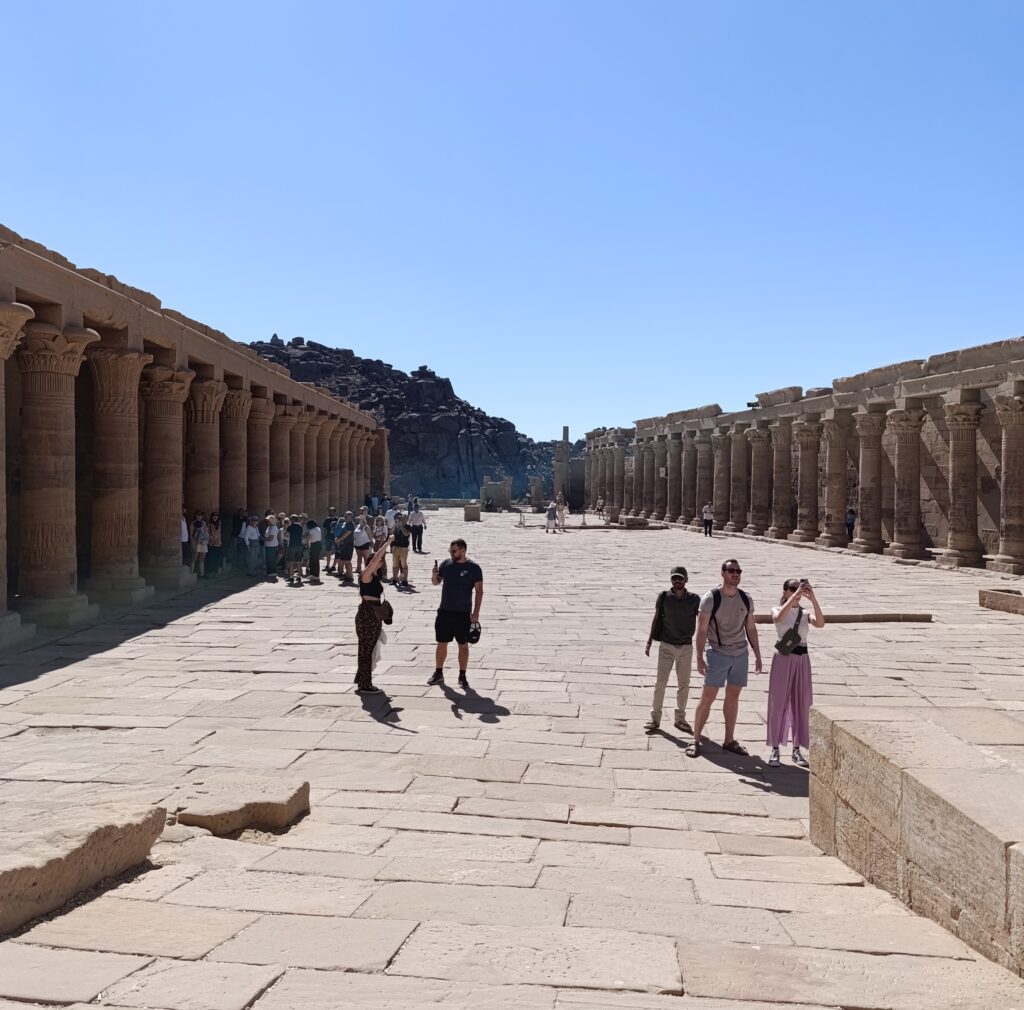
There weren’t many queues at the big monuments and not many crowds in Upper Egypt or at the Valley of the Kings. In fact, no crowds anywhere really. I saw many more local tourists. In Luxor, there were even several school group excursions visiting the monuments. It was actually quite refreshing to see locals visiting the sites.
I understand people’s concerns about the nearby conflict, but the security situation on the ground is more than stable in Egypt. Egypt pays very close attention to the security of tourists. There are tourism police that at any given moment know where tourists are, as the guides must stop and submit papers with information about how many tourists they’re travelling with. It’s a standard precautionary measure to help monitor the safety of international tourists. I never felt unsafe for even a moment.
Cairo is one of the biggest cities in Africa – what were your first impressions when you arrived?
The first thing I noticed was that the air felt heavy! It was different from anything I had experienced before, coming from Europe, and not having ever seen a desert landscape. The heaviness was most likely because of sand in the air and I later learned that Cairo’s air can be a bit polluted, like in any other big city. It has a population of over 15 million people and the city never sleeps!
I arrived in Cairo on a very late flight and although there wasn’t much traffic at that hour, the neighbourhood around the hotel was still very much alive. People were out on the streets, chatting, having fun, taking photos and strolling along the Nile. Egyptians are very open people and among the younger population you’ll see groups of friends hanging out together, socialising on the streets, taking selfies and listening to music on portable speakers. It’s very festive – even at 3am!
Cairo during the daytime is very busy with traffic. There’s no rhyme or reason to it – it’s just a mess that works!
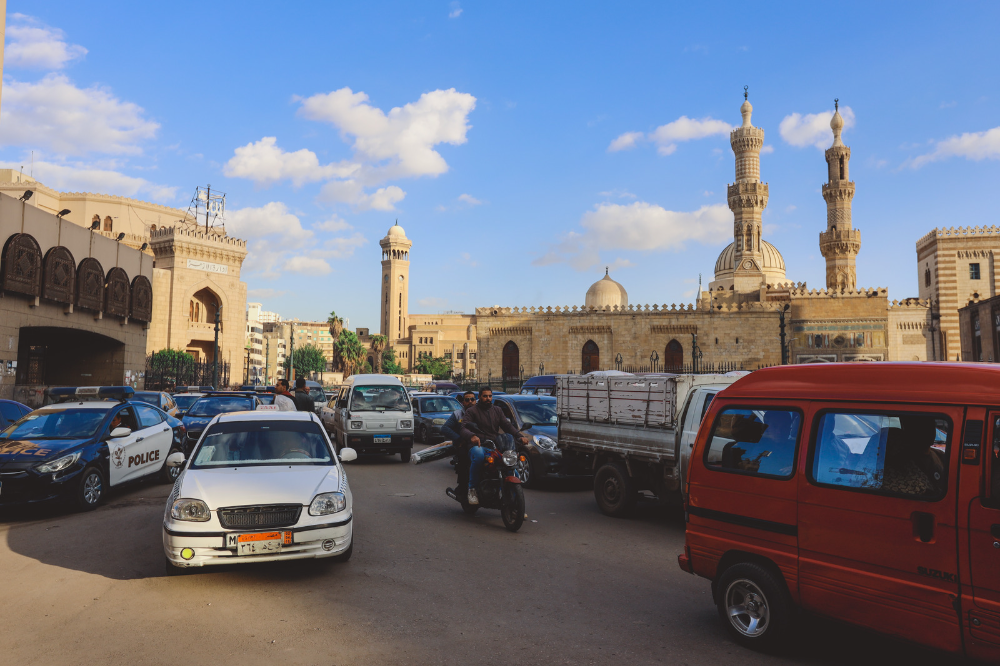
People driving cars are very patient, but they love to beep their horns, so the traffic is loud. There’s A LOT of beeping going on. But they all seem to understand each other (it’s two beeps to overtake someone), and don’t expect traffic to obey any road rules. They won’t stop at pedestrian crossings – you just have to be careful, keep your wits about you and go with the flow. It’s organised chaos!
Tourists have had a long love affair with Egypt – are Egyptians still welcoming tourism, unlike other places in the world where over-tourism is becoming a problem?
Yes, Egyptians are so welcoming! Tourism is a huge part of their culture and Egyptians really want people to come and visit.
They’re very curious and it’s easy to strike up a conversation with the locals. They’ll often ask, “Where are you from?”, and want to know what’s brought you to their country. They want to share details about their lives with you and they ask lots of questions to learn about yours too!
Hospitality is a big deal across the Arabian world and Egyptians try very hard to accommodate you, and welcome you as a guest to their country, and homes. The staff in the hotels do their very best to do whatever you need to make sure you have a pleasant stay. Egyptians really are some of the politest people you will ever meet.
Is English widely spoken there?
You’ll find English is widely spoken in the regions where tourists visit and even people who aren’t fluent know at least some basic phrases to be able to help you. In stores in the regional areas, people know a little bit of English too – it’s not a problem to communicate.
I even met a man at a bazaar who spoke my language (Bosnian)! Apparently he’d learnt my language because he was very interested in this part of the world. Egyptians are incredibly open and hospitable to foreigners and go out of their way to make every interaction feel warm and inviting.
How safe did you feel as a female traveller and why is Egypt one of those destinations best travelled as part of a group?
Egypt is a popular tourist destination with millions of foreigners visiting each year so they’re very accustomed to female travellers. I never felt unsafe at any point but of course, like any other touristy country, you should be extra cautious in crowded areas, especially bazaars and be aware of the opportunities for petty theft.
It’s respectful to wear modest clothing that covers your shoulders and knees to prevent unwanted attention too, and wearing a headscarf when visiting mosques is a must.
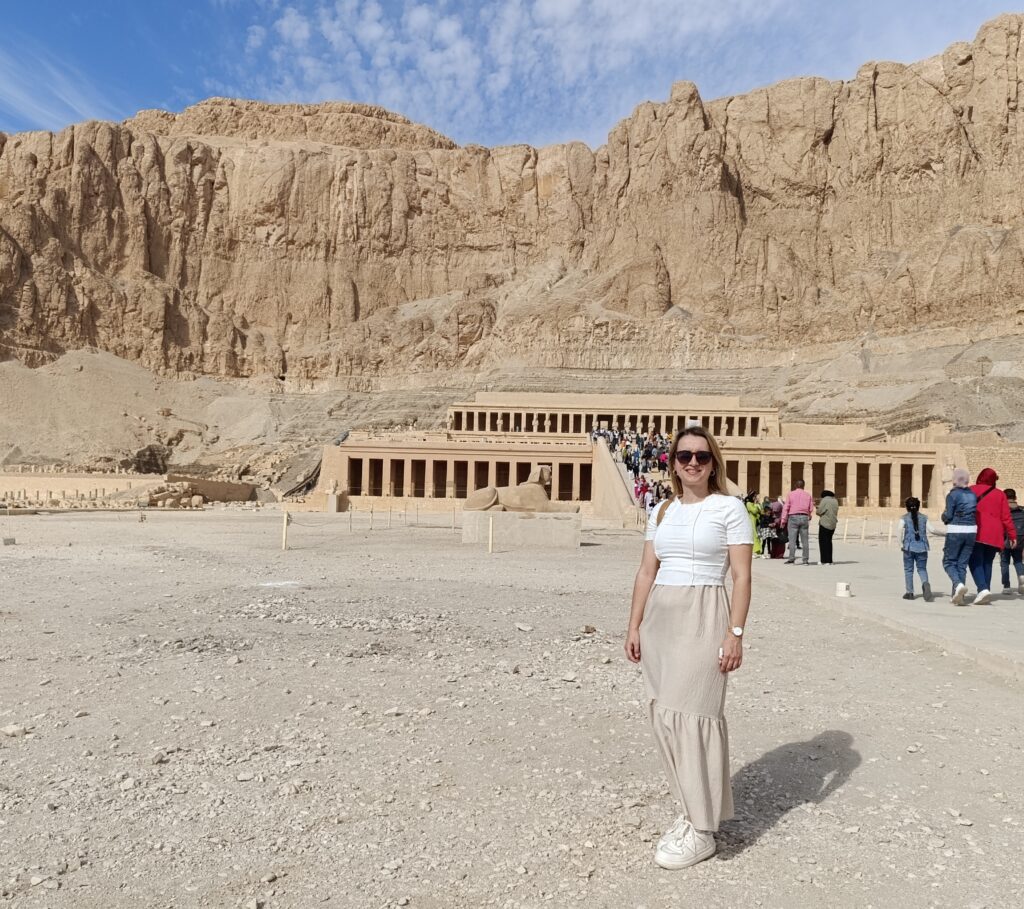
Overall, Egypt is a safe country, and Cairo is a lively city that never sleeps so walking alone at night is generally fine. Most tricky situations are more challenging than dangerous but if you’re a woman traveling on your own, you are more likely to be approached and receive extra attention from street vendors and that can sometimes feel overwhelming. When you’re with a guide and a group they tend to leave you alone.
Egypt is huge! It’s really tiring to research, plan and travel on your own. There’s a lot to juggle. Public transport in these countries can also be challenging too. With a guided group, you don’t have to worry about negotiating taxi fares or figuring out bus schedules – it’s smooth and stress-free. Your guide has that local insider knowledge to tell you things like; which ATMs are safe to use, or even to teach you how to haggle! It makes the experience so much more comfortable.
Here’s something I wasn’t expecting: when I was in the north of Egypt visiting a monument, there was a group of students that wanted to take a photo with me… because they thought I was ‘Shakira’ (the singer) *laughs*! They came over to ask for a selfie, and when I declined, they respected that. I didn’t want to have my photo taken or to mislead them! They didn’t have bad intentions – it was just their curiosity that made them ask.
Did you get hassled a lot by touts at the monuments or by market sellers and how did you handle these situations?
Yes, this happens quite often as there are souvenir markets at the front of the monuments with very pushy sellers. They know women love to shop and think you’re an easy target. It’s not dangerous but it can be annoying.
Always listen to your guide for how to handle sellers and touts. Don’t pay them any attention, don’t engage and they will leave you alone. That strategy really works, and they’ll give up quickly.
Once you’re inside the monuments you will see ‘monument guardians’ in traditional dress offering to give you a guided tour and to have a photo with them. My guide advised me to refuse them, as they will always ask for extra money at the end. It really was helpful having their knowledge to help with situations I was unfamiliar with.
As another example, when it came to haggling for souvenirs in bazaars, my guide and I used a secret code to help me know when a fair price had been reached. He’d put his hand in his pocket when I started haggling with the seller, and when he felt the price was fair, he’d take his hand out. It was great!
What were your observations of Egyptian men and women going about their day-to-day lives that stood out to you?
Egypt has an open and energetic culture, with much of daily life happening on the streets.
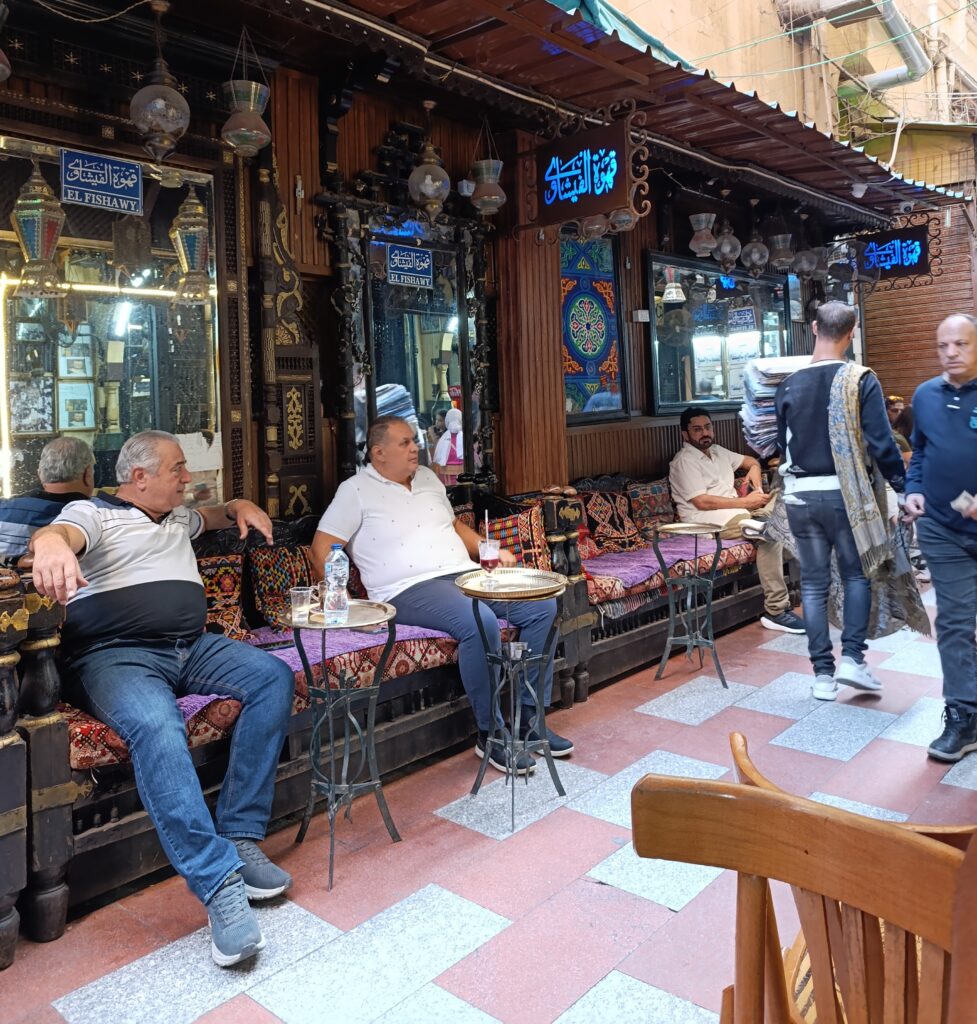
In Cairo, you’ll see lots of people hanging out in cafes chatting, with groups of men smoking ‘shisha pipes (flavoured tobacco) and cigarettes. Egypt has a big smoking culture! It’s forbidden in hotels but it’s very common everywhere else.
You’ll also see lots of women socialising in restaurants and cafés. Many of them are in the workforce. Our local team includes females. Whereas, in Upper Egypt (the southern part of the country, also known as the Upper Nile), you’ll notice fewer women in such places. Instead, they’re often busy shopping in street markets or taking children to school. They’re more likely to be stay-at-home mums, partly due to fewer job opportunities.
Education is available for both men and women but is largely gained through private school tuition rather than public school, so opportunities depend on what families can afford.
You mentioned we have females on our Egyptian team, what can you share about the guides for our Egypt and Jordan adventure?
I didn’t get to visit Jordan on this trip, it’s a much smaller country than Egypt. The distances to travel aren’t as far, and I’ve found that our female guides much prefer trips of shorter durations, as they often have family obligations at home. This is why we have a wonderful female guide for the Jordan part of our itinerary and a male guide for Egypt, as it takes longer to get to the monuments because of the greater distances to cover.
What were the roads like travelling to the different regions on our itinerary and what kind of vehicles did you travel in?
Egyptian roads are quite an adventure! We use mini vans for this trip and some routes have plenty of bumps, so be prepared for a bumpy ride. Because of this, travel times may be longer than expected, as cars often need to slow down.
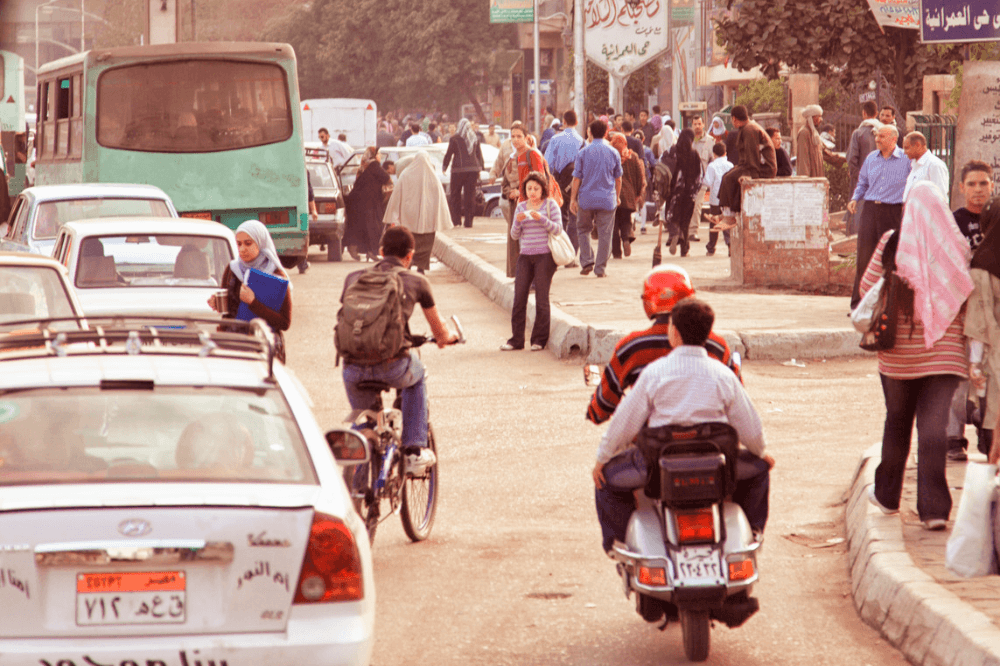
The road from Aswan to Luxor is very populated along the coastline and there are lots of obstacles to navigate in general on Egyptian roads. What would be a two-hour drive in Australia would take four hours in Egypt, though the local team tells me the government is building a new highway which will improve things, but in the meantime, you can expect road travel to be adventurous and patience is required!
Can you describe for us what it was like seeing the pyramids and monuments? Do they live up to the hype?
Seeing the Pyramids was a true ‘pinch me’ moment – they absolutely live up to the hype! The Sphinx is even more magnificent, and standing next to these massive monuments makes you feel incredibly small.
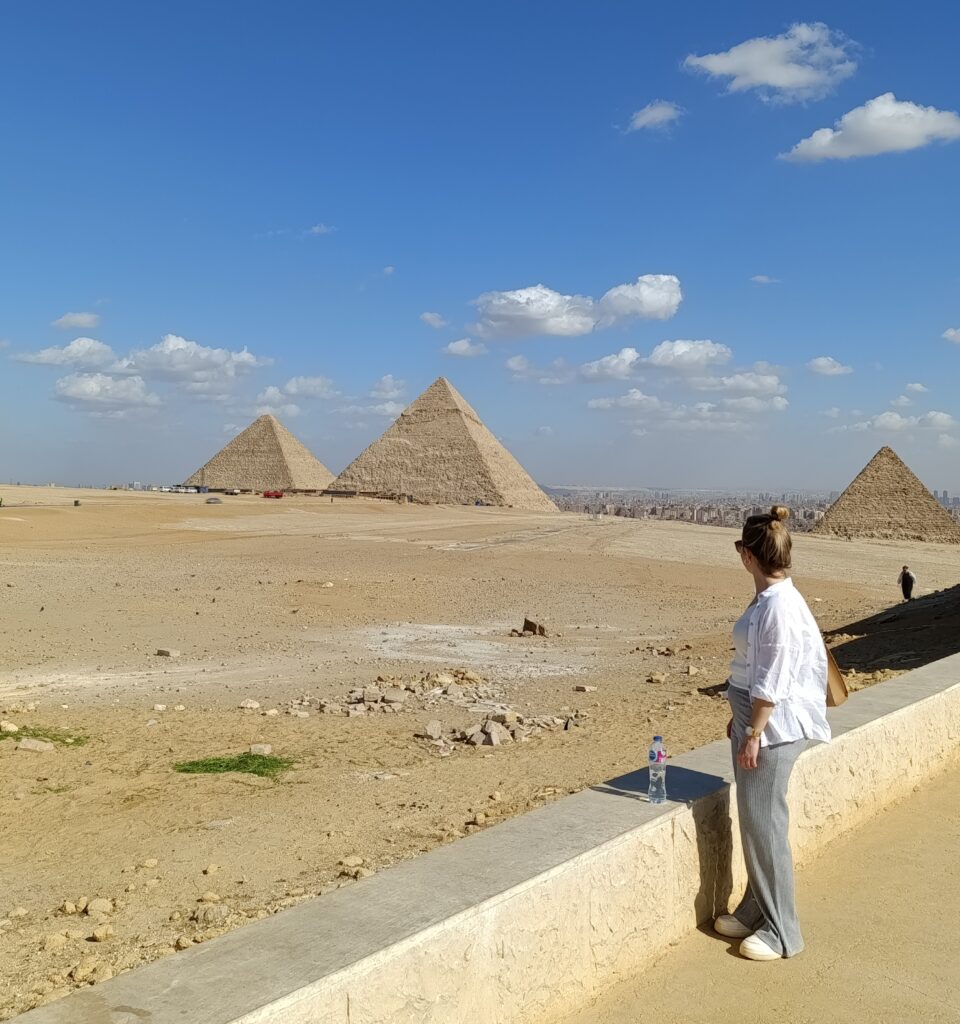
As I stood there, admiring the Pyramids, my wonderful guide told me something surprising, “You’ll forget about the Pyramids quickly once you see the temples of Upper Egypt.”
That was my next destination, and I couldn’t wait to see what he’d meant!
He was right – seeing the temples of Upper Egypt really did make me forget about the Pyramids pretty quickly!
After Cairo, my next destination was Aswan, the city I loved the most.
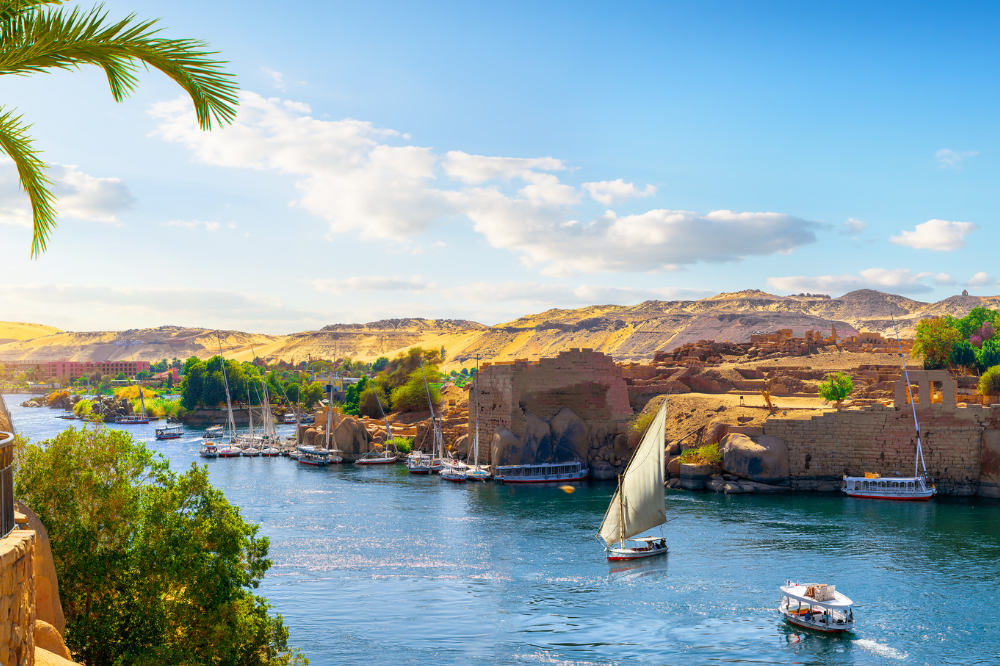
The first temple I visited was Philae Temple, and it was truly an unforgettable experience. The temple is located on one of the islands in the Nile River, so you have to hop on a speedboat to get there. The landscape around it is breathtaking, and as you approach the island, the temple’s towers get higher and higher.
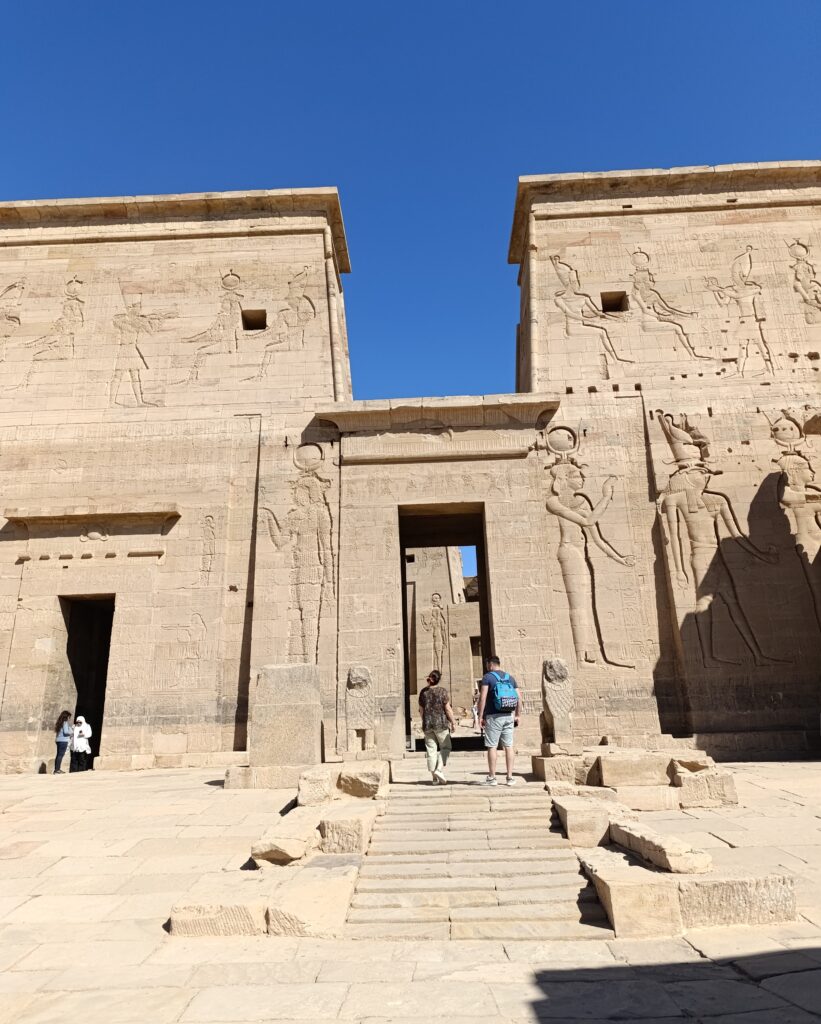
The walls are covered in scenes, with such detail, from Egyptian mythology, making the whole experience feel like you’re stepping back in time. Here you are, arriving at this island by water and seeing a huge monument just popping out in front of you. It’s absolutely magical!
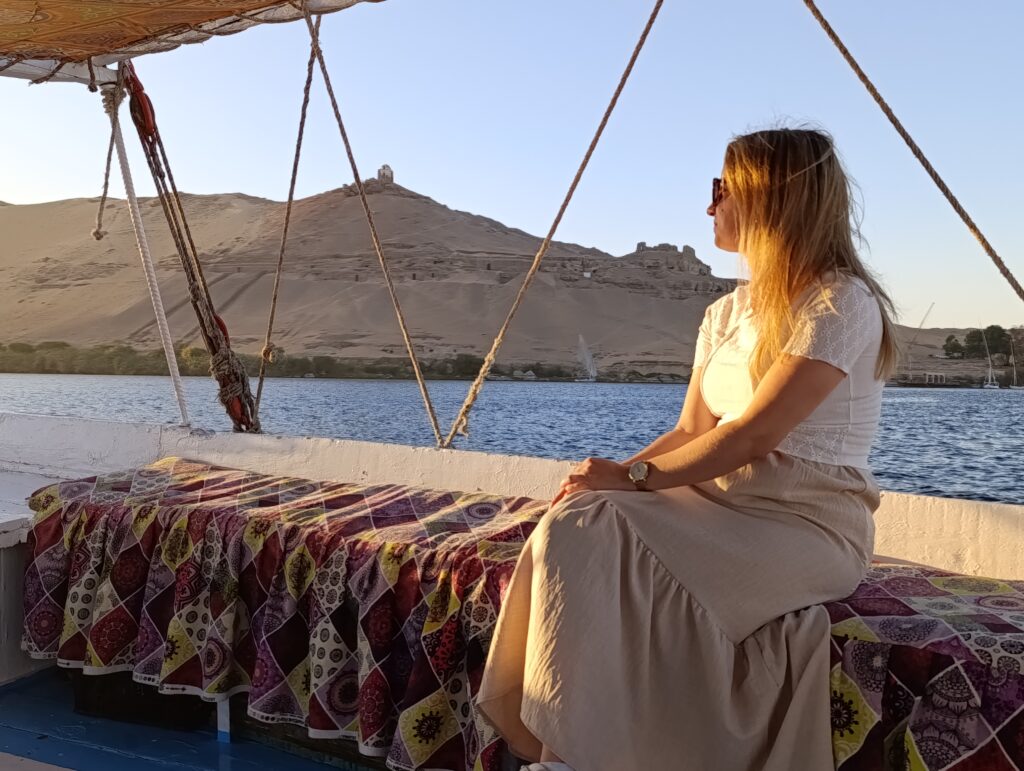
Sailing on a felucca was another incredible experience – I highly recommend it! Aswan is a beautiful little town with a stunning landscape, and sailing down the Nile at sunset was a once-in-a-lifetime moment. You feel like you’re sailing through history!
I also had the chance to try Nubian food in one of the villages and chat with the locals.
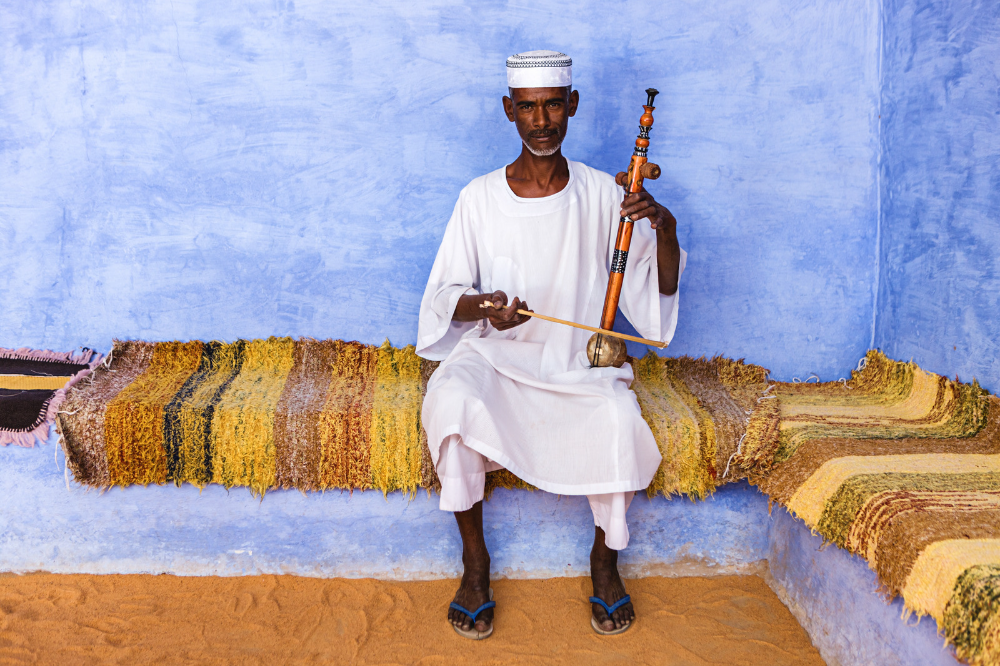
It was fascinating to learn about their traditions – for example, men save up a lot of money before getting married because they want to ensure their brides have plenty of gold as they start their new lives. Our host at the dinner, Ahmed, had joked with me, “It used to be camels, but now it’s gold!”
My next destination was Luxor, where I visited the magnificent temples of Queen Hatshepsut, Karnak and Luxor.

The Valley of the Kings is also in this area, and it’s something you don’t want to miss. Walking through the tombs, especially the tomb of Ramesses VI (the most well-preserved one), felt like something straight out of a movie.
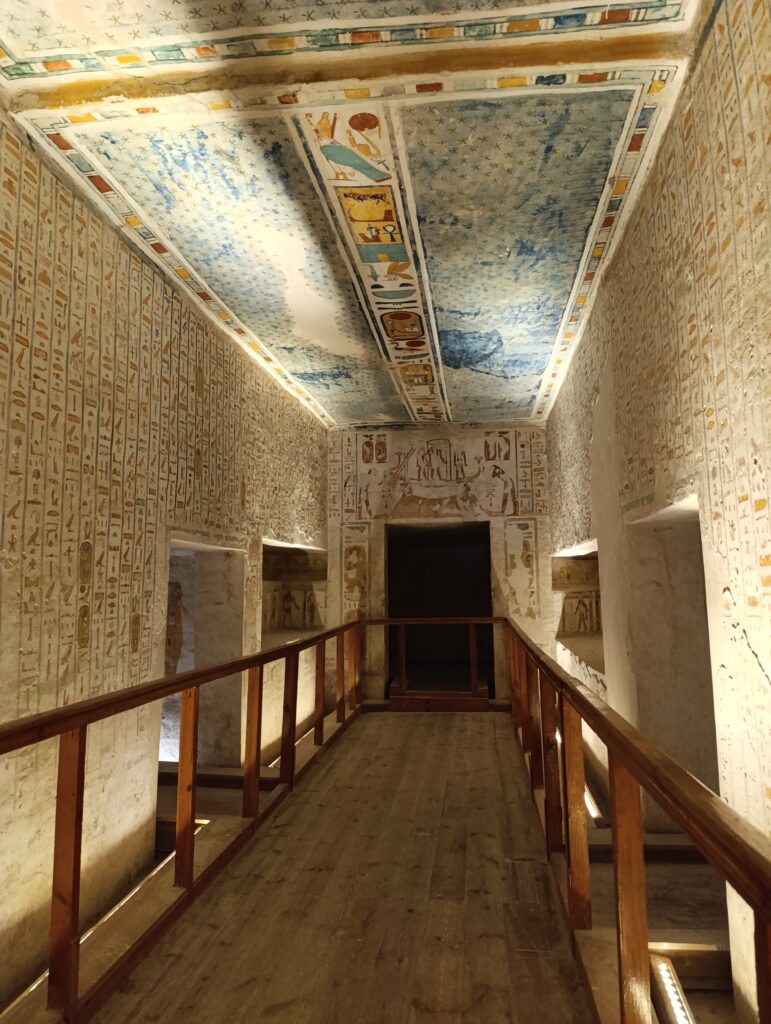
One of the best things about traveling is trying the local cuisine – how would you describe Egyptian food?
Egyptian cuisine is wonderful! While there’s a considerable amount of meat offered, non-meat lovers will also have plenty of options too, including hummus-based and vegetable-based dishes, though dietary allergies can be a bit more challenging to navigate. Awareness of allergies and intolerances is still growing.
Hotels and restaurants that cater to international guests are making a great effort to educate themselves and are doing a good job. However, in local restaurants that mostly serve locals, you’ll need to choose your meal wisely. Of course, your guide will always be there to recommend restaurants that can accommodate your needs.
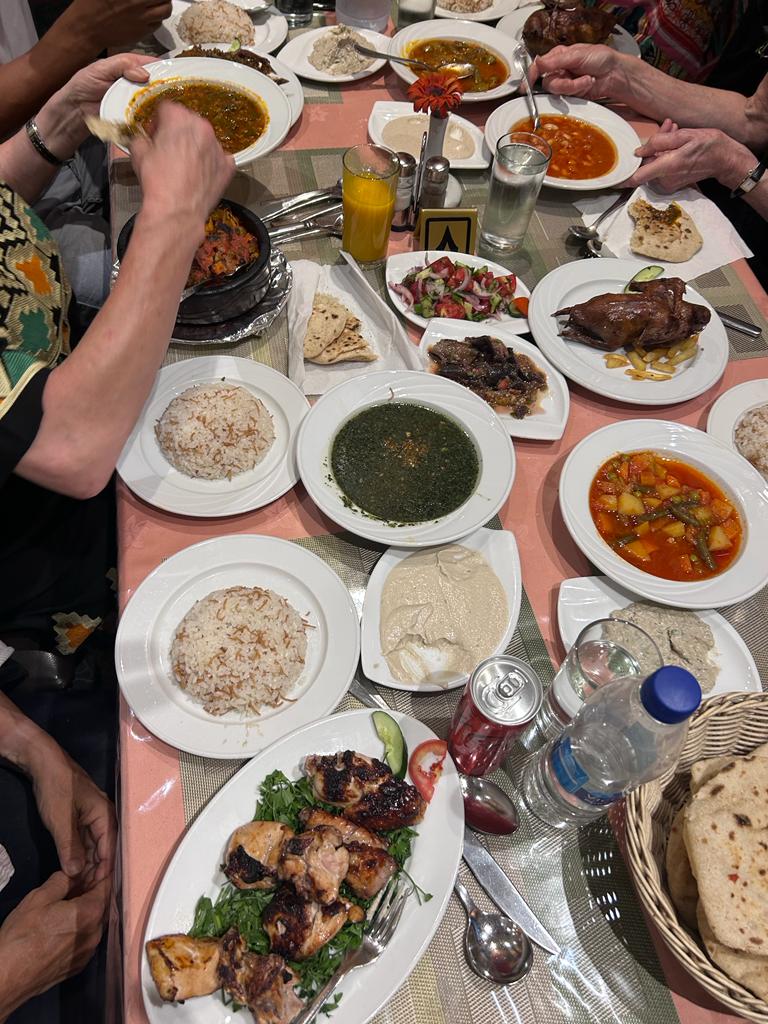
Portion sizes are generous, you won’t go hungry in Egypt! The local mentality is all about hospitality – they always want to feed you as that is how they show their love – with lots of food!
One of the most heartwarming experiences I had was enjoying a home-cooked meal in a local home in Luxor. The food was incredible, and the family welcomed me warmly, making me feel part of their home. I had the opportunity to sit down with them and chat about their day-to-day lives. I can’t wait for our guests on this adventure to experience this too!
One particularly interesting aspect of their culture is that multiple generations live under the same roof, which gives great insight into their way of life. In one large household, you’ll often find three generations living together – parents, their sons and daughters-in-law, and their grandchildren. They coexist as a team, with the men typically working outside the home while the women prepare meals and take care of the children. It’s a beautiful example of family unity and tradition.
Is there anything travellers should look out for in terms of staying healthy when visiting Egypt?
Yes, tap water is not safe to drink and as the weather can be hot, you’ll need to drink lots of water to stay hydrated as you’ll be doing lots of walking and exploring the monuments. Bottled water is cheap and easily accessible, hotels also provide you with plenty of water.
As some areas are dusty (and there’s a lot of sand too!), I highly recommend taking good comfortable walking shoes. Some entrances to certain tombs have steep wooden stairs, so be prepared for that as well.

A good tip is to carry (anti)bacteria hand sanitiser with you. You’ll be travelling to a different continent in different conditions to what you’re used to, so it’s very important to sanitise your hands and you’ll definitely use a squat toilet or two along the way.
The main thing to watch out for though is the heat. We always plan our trips during the best possible weather to avoid extreme heat but still, be sure to drink plenty of bottled water, wear a hat and sunglasses and choose clothing that won’t make you sweat even more. Take breathable, natural fabrics to stay as comfortable as possible and to help protect against sunburn, and it’s definitely a good idea to wear sunscreen.
What did you think you were going to love about Egypt versus what surprised you that you fell in love with instead?
I thought the Pyramids would be the highlight, but it was actually Upper Egypt that stood out the most – the people I met, our local team, and the incredible guides I was with made the experience unforgettable.
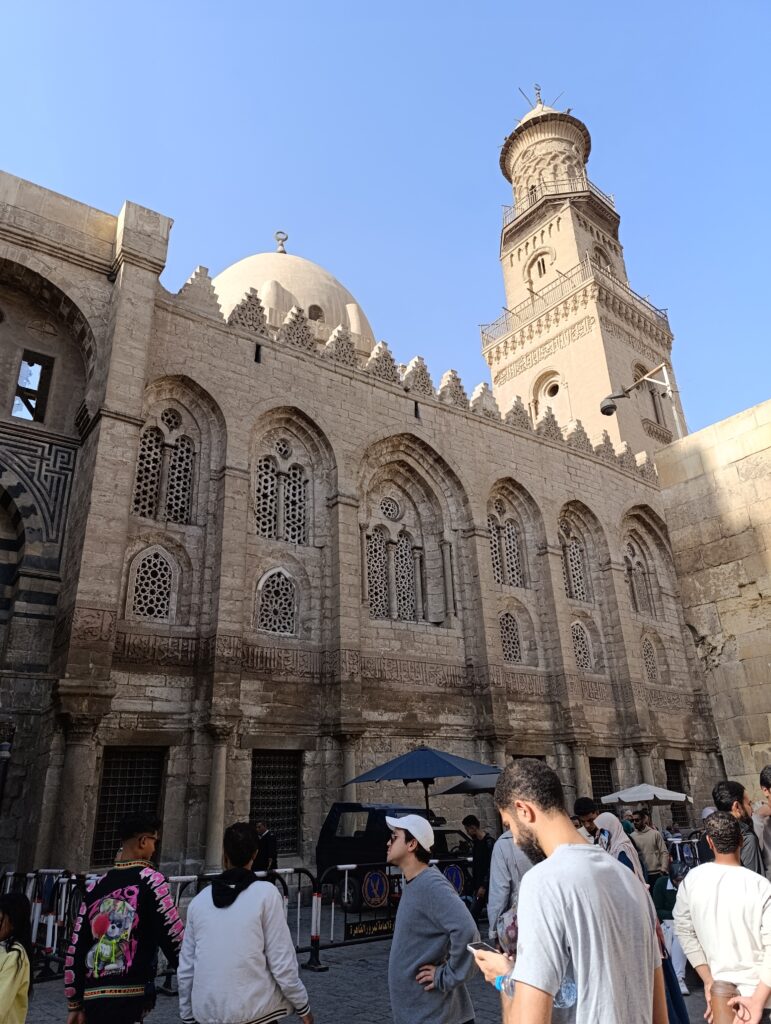
I also really loved the Islamic part of Cairo and visiting a mosque. It has such an oriental vibe which surprised me – like an oriental fairytale!
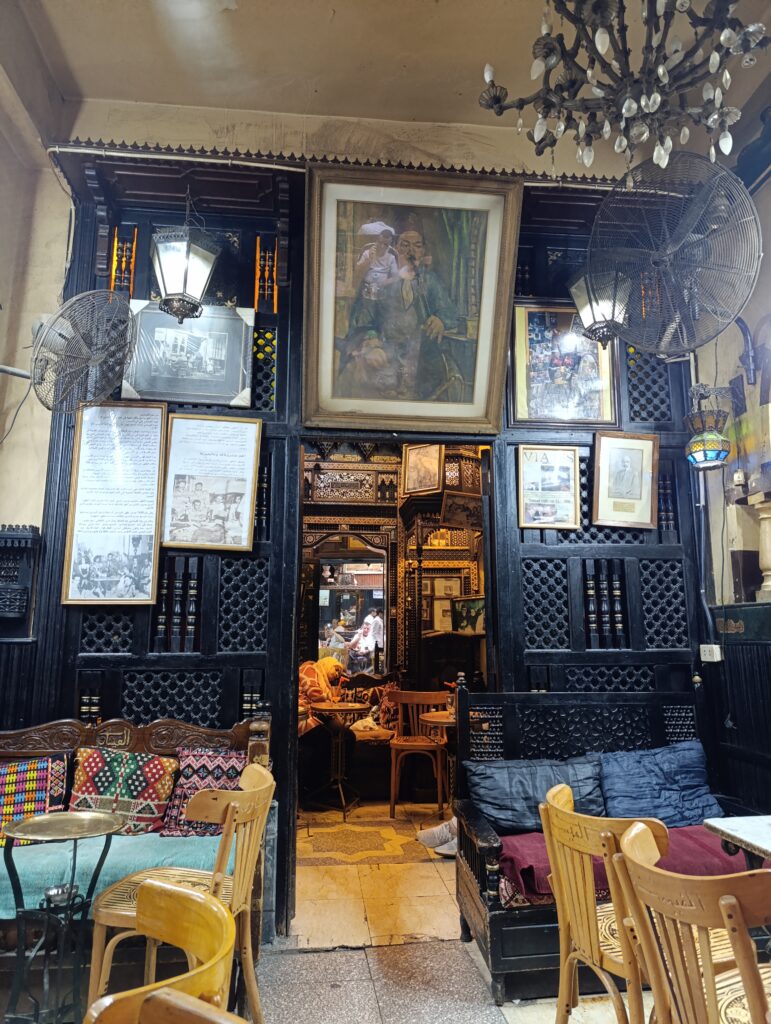
My guide took me to a café where one of Egypt’s most renowned authors, Naguib Mahfouz used to sit, have tea and write his books. That was a truly special moment.
What were your favourite moments from your trip?
They were meeting our local team, enjoying tea in the Islamic part of Cairo and chatting with Ahmed, who hosted the dinner in the Nubian village.
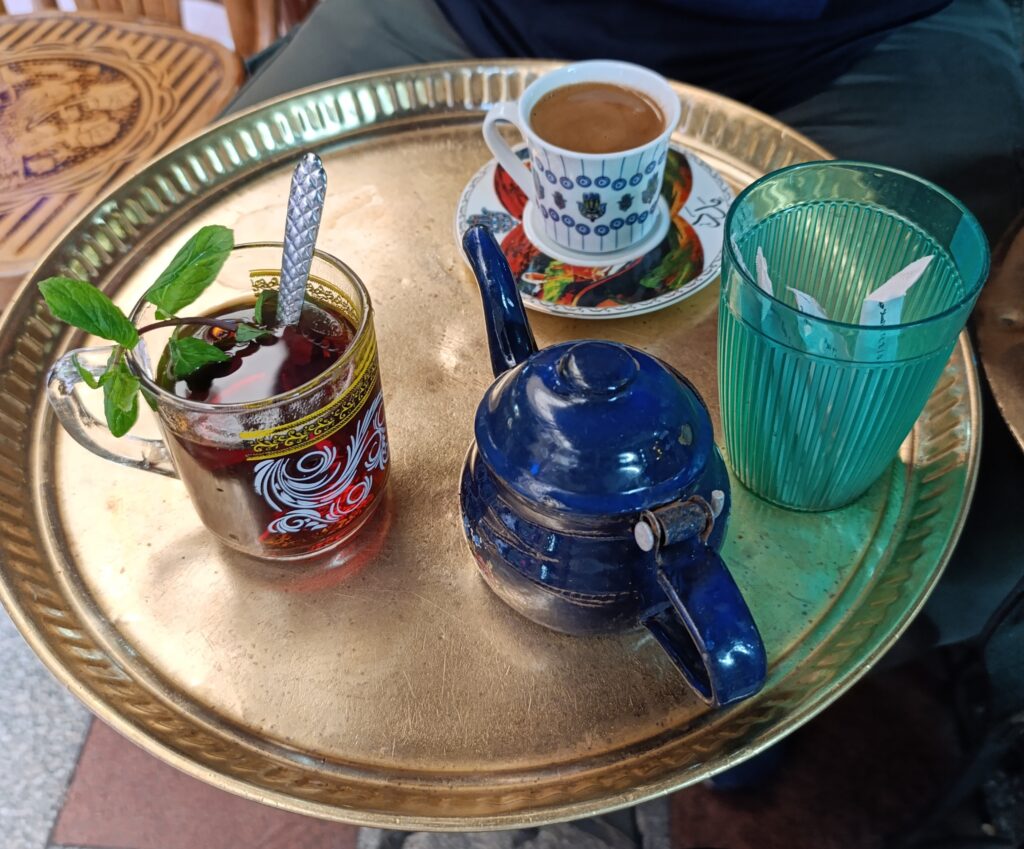
He was very funny and a lovely person. He introduced me to their customs in such an entertaining way – it made the experience so memorable!
Do you have any advice to share with anyone who is thinking about visiting Egypt?
Stop thinking about it… just GO! Bring an open mind and be accepting that Egypt is very different from anything you’re used to. It’s an amazing blend of African, Islamic culture and Arabian hospitality. I think everyone should experience it!
Now that we’ve spilled the sand on what Egypt is really like…come join us!
Have some questions about this trip?
Don’t carve them in hieroglyphics on a wall, get in touch with us here and one of our BMs will be in touch to answer all the things you’re curious about!